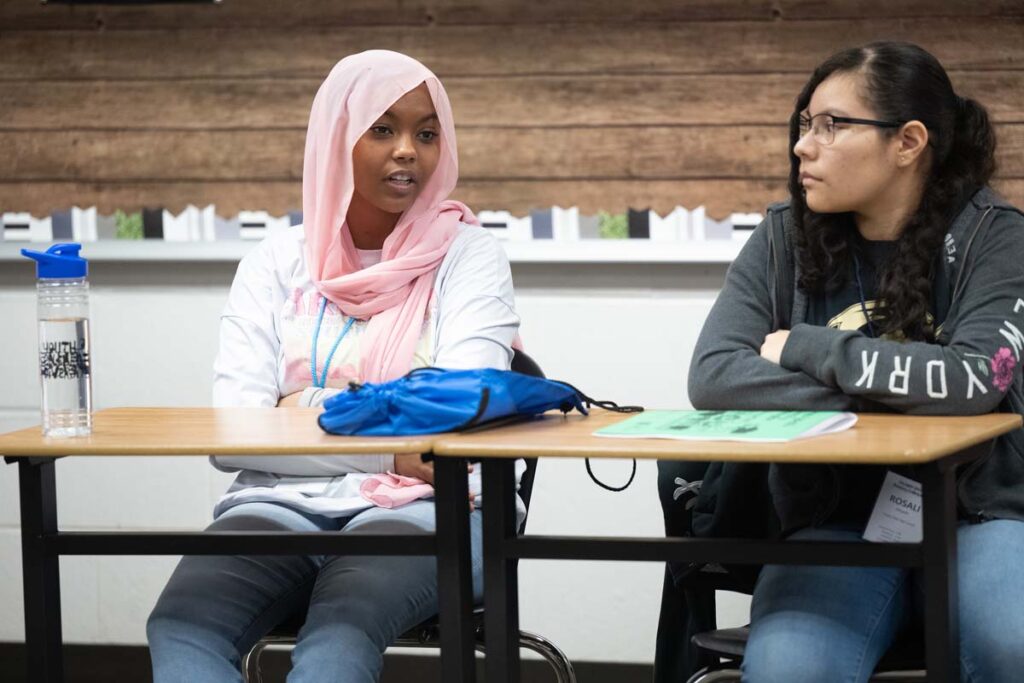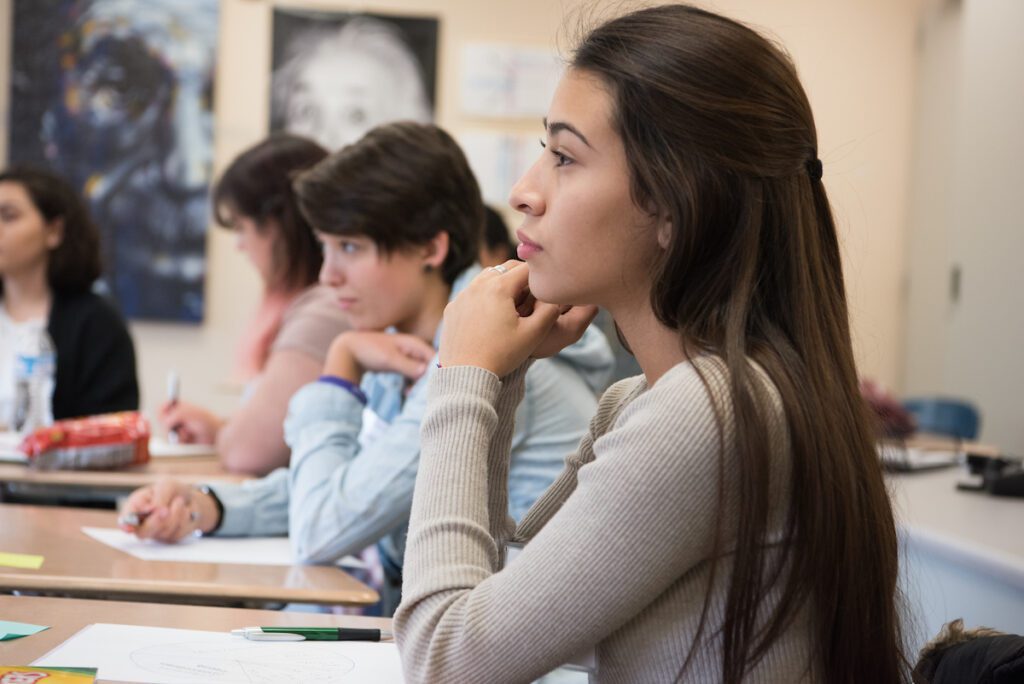We support teens building healthy relationships and combating suicide, anxiety, stress and other challenges so that young people can focus on achieving in school.
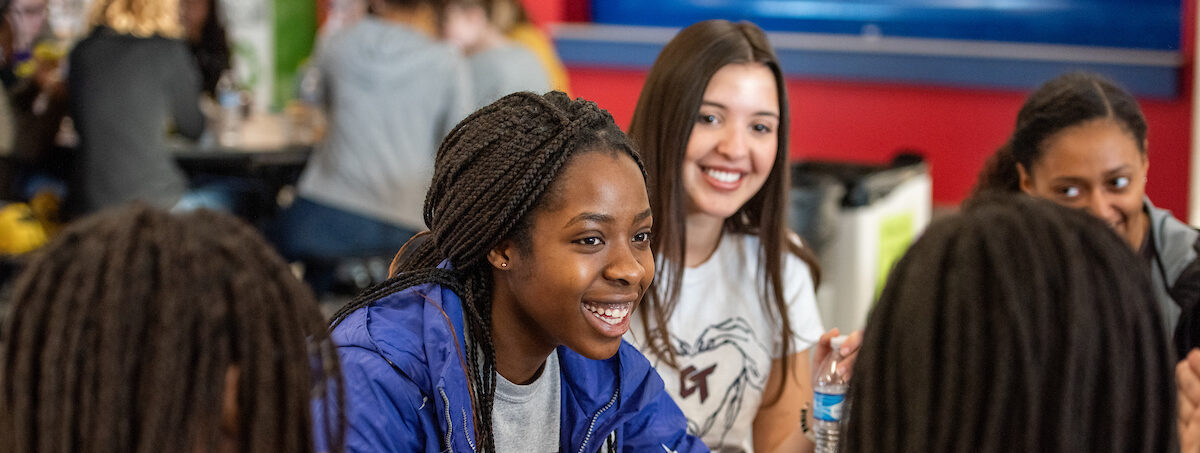
Jump to a section:
Immediate Help
If you or a loved one is struggling with self-harm or suicidal thoughts, call the National Suicide Prevention Lifeline at 988 or 1-800-273-8255. The services are free and available 24/7.
LGBTQ+ youth can also reach out for support from The Trevor Project at 1-866-488-7386.
The National Sexual Assault Hotline is free and available 24/7 at 1-800-656-HOPE.
Important Mental Wellness Terms
All definitions per the Cleveland Clinic unless otherwise noted:
- Mental wellness (or mental health): the foundation for emotions, thinking, communication, learning, resilience and self-esteem. Mental health is also key to relationships, personal and emotional well-being and contributing to community or society.
- Depression: a depressed mood is a normal reaction to loss, life’s struggles, or injured self-esteem. Sometimes, however, depression becomes intense, lasts for long periods, and prevents a person from leading a normal life.
- Anxiety: anxiety is a normal human emotion. Many people feel anxious, or nervous, when faced with a problem at work, or before taking a test or making an important decision.
- Stress: the body’s reaction to any change that requires an adjustment or response. The body reacts to these changes with physical, mental, and emotional responses. Stress is a normal part of life. You can experience stress from your environment, your body, and your thoughts. Even positive life changes such as a promotion, a mortgage, or the birth of a child produce stress.
- Mindfulness: being present in the current moment, rather than spending time anticipating concerns, thinking about what might happen or what did happen. (Dr. Suzanne Sukol)
- Healthy relationship: relationship between two people with open, honest and safe communication; mutual respect; compromise; reassurance and encouragement; and healthy boundaries. (Loveisrespect.org)
Why Mental Wellness and Healthy Relationships Matter for Youth
- In 2017, 13% of U.S. teens ages 12 to 17 (or 3.2 million) said they had experienced at least one major depressive episode in the past year, up from 8% (or 2 million) in 2007. This includes 20% of teenage girls, and 7% of teenage boys. (Pew Research Center)
- Among teen girls who had recent depressive episodes, 45% received treatment for depression over the past year. By comparison, 33% of teen boys with recent depressive episodes received treatment. (Pew Research Center)
- 70% of U.S. teens said anxiety and depression is a major problem among people their age in the community where they live. 61% said they feel a lot of pressure to get good grades. 29% said they feel a lot of pressure to look good. 28% said they feel a lot of pressure to fit in socially. (Pew Research Center)
- Teen dating violence is an issue that affects 1.4 million high school students each year, yet only 33% of teens who were in an abusive relationship told anyone about the abuse. (loveisrespect)
- One in 9 girls and 1 in 53 boys under the age of 18 experience sexual abuse or assault at the hands of an adult. 82% of all victims under 18 are female. (RAINN)
Wellness Leaders Who Inspire Us
Here’s a list of folks who are leading the conversation on mental wellness and health relationships today, whether on the local or national level. They inspire and inform our work. Follow them on social media, or seek out opportunities to hear them speak to dig deeper on these issues.
YCD Workshops on Mental Wellness and Healthy Relationships
YCD has a curated library of over 60 workshop guides on every aspect of inclusion and justice work for middle and high school youth to explore in their own youth-led club or group — with new workshops being published every month. These guides can also be used by educators as part of their in-school curriculum, where interested.
Below is a free sample workshop created by YCD on the topic of mental wellness, available for anyone to use and download.
How We Internalize Oppression
Watch a video displaying internalized oppression, then engage in a captivating discussion on the ways we experience oppression and internalize it. Create strategies to break free from internalized oppression as a group.
Other topics available as downloadable workshop guides or offered at YCD conferences/events include:
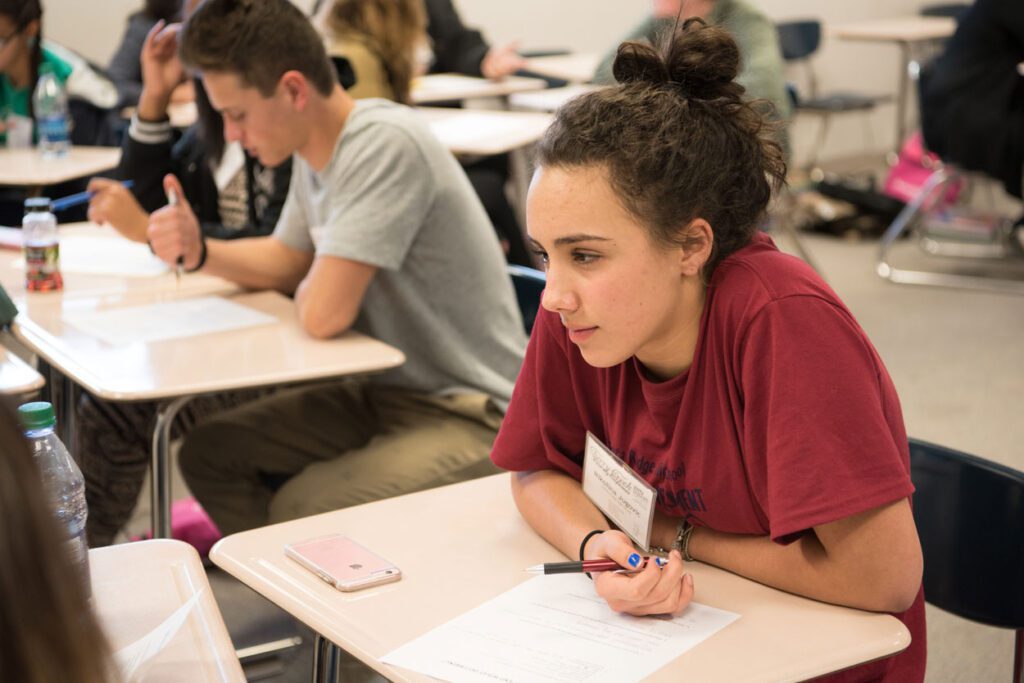
A Student’s Guide to Handling Depression, Anxiety and Stress
Students will learn about the neuro-biological basis of emotion, and participate in a positive discussion about depression, anxiety, and stress. Special emphasis will be placed on psychological tools to cope with difficult thoughts and emotions—something that everyone has! Local psychologists will provide you with some useful strategies on how to boost your happiness quotient!
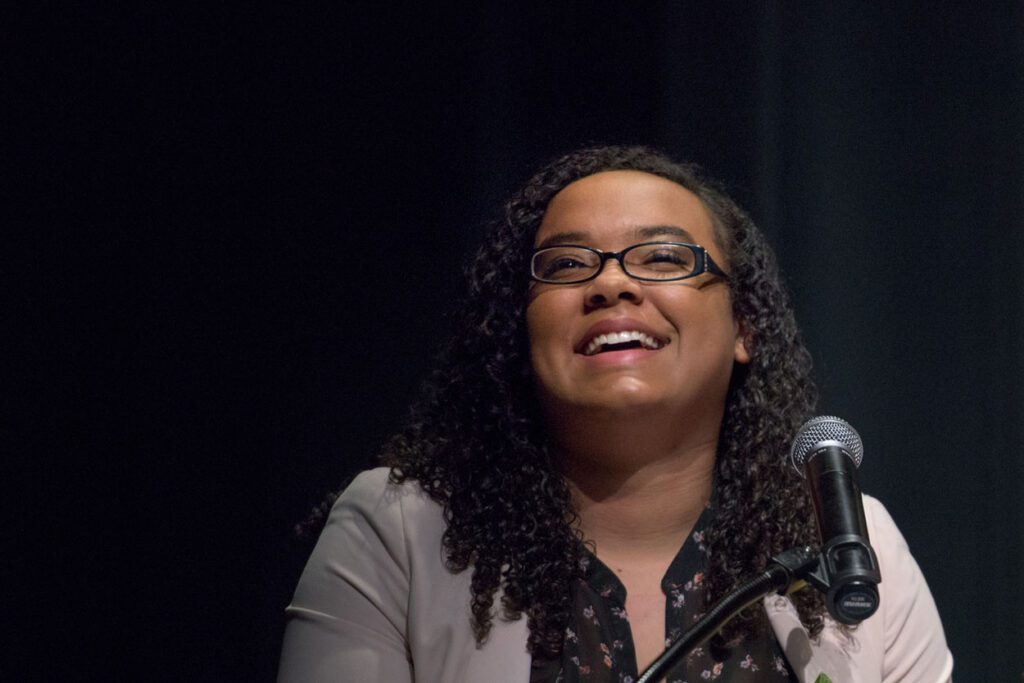
Embracing Failure as a Way to Grow
This interactive workshop will give insight into real failures and hardship while evaluating the participants’ relationship to failure. Attendees will learn how to embrace failure and use it to gain knowledge. We will discuss strategies on how to take away the negative connotations that surround failure and, instead, show how failure can be as much of a friend as success can be.
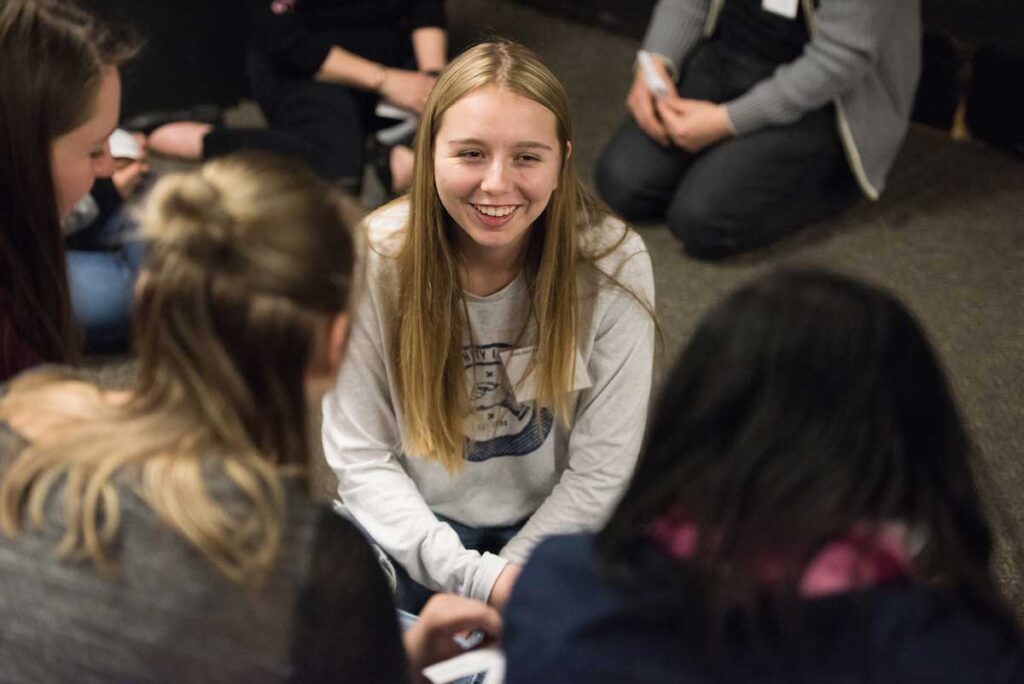
Empowering You to Prevent Suicide
In this session, participants will gain insight and information into the risk factors students face when it comes to suicide. We’ll debunk some myths and face some hard truths. The goal? To feel empowered to support ourselves and one another, working toward prevention of suicide in our community.
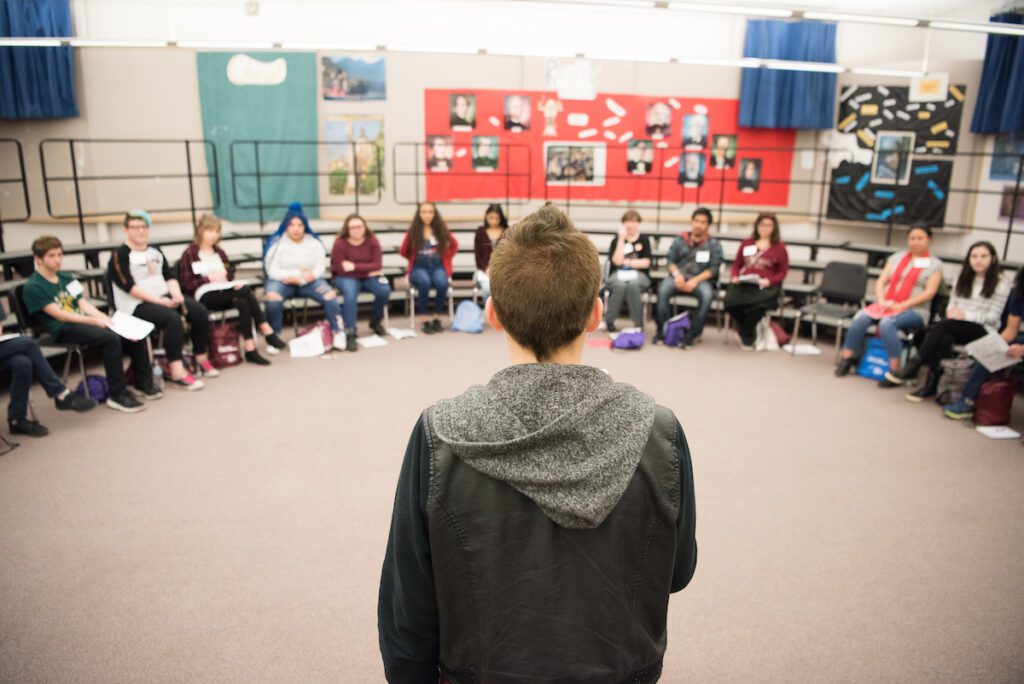
Confronting Bias and Prejudice through Poetry
Step inside this workshop and learn how to express your thoughts and feelings through hip hop, poetry, and spoken word. Give voice to our stories of love, struggle, injustice, and celebration. With our words, we can represent our culture and traditions as we strengthen our minds and better our communities.
To experience these workshops, YCD events, and much more, start or join a YCD chapter!
Videos to Explore Mental Wellness and Healthy Relationships
Mental Health for Teens
Mental health is too often stigmatized in communities working for social change. This episode is for those interested in understanding and exploring how trauma is passed down through generations, and why addressing mental health is necessary to build a strong, healthy community.
Yoga and Meditation for Teens
Stressed out? Feeling anxious? Join Austin Dempers from bhavanaKIDS for a yoga and meditation session designed just for teens and young people.
Teen Mental Health and Wellness during COVID-19
There’s been a lot of talk about the challenges of mental health during the pandemic and among youth. But how many times have you had a chance to hear from youth directly about what they’re thinking and going through? Hear from several teens about the mental health challenges and struggles they are facing, and the reaction and advice from a licensed school psychologist. It is our hope this discussion will provide positive advice and help for teens nationwide.
The Psychology behind Microaggressions
What are microaggressions? What is their impact on people of color, and students of color? How can we focus on healing after suffering from a microaggression? In this video a student interviews psychologist Dr. Mariel Buquè about the psychology of microaggressions.
Combatting Human Trafficking of Youth
Hear from an expert from the Laboratory to Combat Human Trafficking about what human trafficking is, how it affects youth, and steps we can all take to stop it.
Stay up to date for future student-generated videos on this topic and more by subscribing to YCD’s YouTube channel.
Mental Wellness Books for Students
Here is a list of recommended books for students and teens that explore and address mental wellness and healthy relationships. You can find free e-books or your local library using OverDrive.com.
Mental Wellness Books for Educators and Parents
And this list is for educators, parents and adults looking for guidance on mental wellness for youth.
Movies Addressing Mental Wellness and Healthy Relationships
Below are movies that address mental wellness in meaningful and compelling ways.
Podcasts on Mental Wellness and Healthy Relationships
Here is a list of recommended podcasts you can download and follow to explore mental wellness and healthy relationships in more detail.
Ideas for Local Action to Improve Mental Wellness and Relationships
- Start with your own self-care and mental wellness. Are you stressed out? Overburdened and anxious? If this is a regular feeling, does it comes from specific environments or causes? If it is more general, could you reduce your anxiety and stress by cutting back on the number of clubs or activities you do? Recognizing our emotions can be tricky; taking steps to respond to them is important but even more difficult at times. If you need support to work through what you’re feeling and how to improve the situation, seek advice from a friend, a peer counselor, or an adult you trust.
- Does your school or youth organization have a mental wellness and/or relaxation club, or times set aside for mental health? Consider getting a group together to do yoga, meditation, and other activities on a weekly or regular basis to calm your mind, help you de-stress, and regain your focus.
- How has social media helped or harmed your mental wellness and self-image? Plan a group conversation on this topic to hear multiple perspectives. Ensure whomever is leading the discussion has been trained to facilitate. After participants have shared their general feelings and experiences, try to shift toward action items or solutions you can take so that social media nurtures and enriches your life.
- One of the best strategies for getting young people to share the challenges they are facing, and to get the relevant help they need, is peer counselors. This is a group of teens who are trained to be available for any student to share what’s going on, be an active listener, and to connect them with resources for help. If your school has an existing peer counseling program, consider signing up to be trained. If your school does not have a peer counseling program, check out these suggestions to start one.
- Host a screening of One Love’s Escalation workshop, which features a film about dating violence and abuse relationships, followed by discussion. Consider expanding the audience beyond your club to anyone who may be interested. Oftentimes, students in unhealthy relationships may seek out educational experiences like these when given the opportunity, but ensure it’s presented in a way so there is no stigma attached for attending.
Do you have a suggestion of an addition or resource for this page? Share your idea with us.
